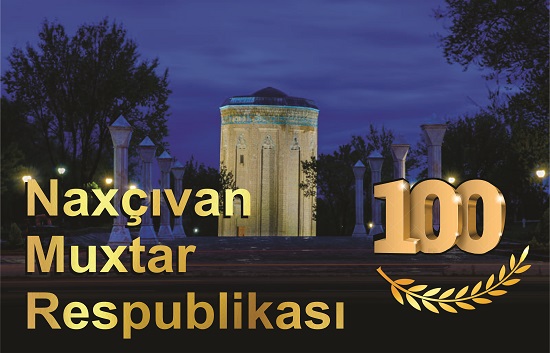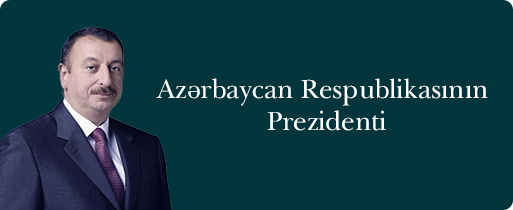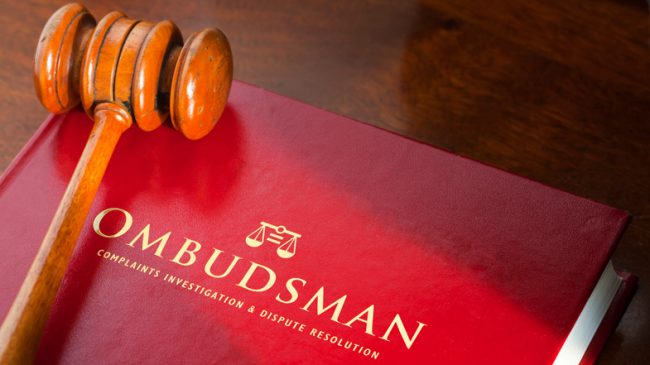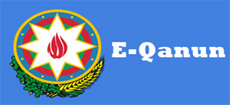The Law of Nakhchivan Autonomous Republic
"About the Commissioner (Ombudsman) for Human
Rights of Nakhchivan Autonomous Republic"
CHAPTER I
The Fundamentals of the activity and appointment of the commissioner (ombudsman) for Human rights of Nakhchivan Autonomous Republic
Article 1. The Fundamentals of the activity of the commissioner for Human rights of Nakhchivan Autonomous Republic
1.1. The position of the Commissioner (Ombudsman) for Human Rights of Nakhchivan Autonomous Republic (hereinafter referred to as "the Commissioner") shall be set up to restore the human rights and freedoms enshrined in the constitutions of the Azerbaijan Republic and Nakhchivan Autonomous Republic and in the international treaties to which the Republic of Azerbaijan is a party, violated by state and local self-government systems and officials of Nakhchivan Autonomous Republic.
1.2. The activities of the Commissioner shall not restrict and substitute the competence of other governmental bodies ensuring the protection of and restoration of violated human rights and freedoms.
1.3. The Commissioner correlates own activity with the Commissioner of the Azerbaijan Republic on Human Rights about the issues on Human Rights and freedoms defence, juridical ,information, scientific-analytical and methodical.
1.4. To verify the activity of the Supreme official of Nakhchivan Autonomous Republic, the deputies of the Supreme Majlis of Nakhchivan Autonomous Republic and the judges of Nakhchivan Autonomous Republic does not concern to authorities of the Commissioner.
1.5. The Commissioner may offer to the Supreme official of Nakhchivan Autonomous Republic in connection with solving the matter of pardoning and citizenship.
1.6. The Commissioner has the right to take into account the complaints on human rights violation by the courts of Nakhchivan Autonomous Republic on bureaucracy, loss of documents and not to return back timely and also about the court decisions execution delay.
1.7. The activity of the Commissioner constructs on publicity, transparency, legality justice, impartiality principles.
Article 2. Election of the Commissioner
2.1. The Supreme Majlis of Nakhchivan Autonomous Republic elects the candidate to the power of Commissioner submitted by the Supreme official of Nakhchivan Autonomous Republic with 31 majority of votes.
2.2. If the Supreme Majlis of Nakhchivan Autonomous Republic does not receive a decision on the election of the Commissioner, the Supreme official of Nakhchivan Autonomous Republic gives the candidacy of another person to the Supreme Majlis of Nakhchivan Autonomous Republic.
Article 3. Requirements to another candidacy of Commissioner
3.1. The citizen of the Azerbaijan Republic, not less than 30 years of old, high educated possessing experience in the field of Human Rights defence and high moral values living in Nakhchivan Autonomous Republic may be elected to the position of a Commissioner.
3.2. The person with double citizenship, having commitment in front of other countries, working in the legislative, executive and court, power systems, being engaged another payment activity excluding scientific, pedagogical and creative activities, activity disability sanotioned by court, sentenced for the serious and special serious crimes can't be a Commissioner.
3.3. The Commissioner has no right to represent in any non-government organization, must not be busy with any political activity and must not be a member of any political party.
3.4. A person elected to the position of the Commissioner must put an end own activity not corresponding to his (her) status within 5 days thereafter being elected.
3.5. A Commissioner swears in the session on the Supreme Majlis of Nakhchivan Autonomous Republic in the very day of election in the below stated: ''Swear to fulfill my powers with honour and properly in the position of the Commissioner for human rights of Nakhchivan Autonomous Republic, to conform the constitution and laws of the Azerbaijan Republic and Nakhchivan Autonomous Republic, to act independently and impartially''.
Article 4. The term of authority of a Commissioner
4.1. A Commissioner is elected for the term of 7 years.
4.2. One man be elected to the position of a Commissioner only one time.
4.3. 30 days to the end of the Commissioner authorities the Supreme official of Nakhchivan Autonomous Republic submits the candidate to the Supreme Majlis of Nakhchivan Autonomous Republic for electing a new Commissioner.
Article 5. Maintenances of the Commissioner independence
5.1. A Commissioner is independent and only obeys the constitutions and laws of the Azerbaijan Republic and Nakhchivan Autonomous Republic .
5.2. The independence of the Commissioner the followings are vouched for:
5.2.1 immutability;
5.2.2 immunity;
5.2.3 inadmissibility of interference by any state or self-government organizations, officials of Nakhchivan Autonomous Republic to his (her) activity;
5.2.4 material and social maintenances.
5.3. Declaration of extraordinary and war situation in Nakhchivan Autonomous Republic does not stop or restrict the activity of the Commissioner.
Article 6. Immunity of the Commissioner
6.1. Within the period of power the Commissioner has personal immunity in Nakhchivan Autonomous Republic.
6.2. During the period of power the Commissioner must not be sentenced, arrested and detained excluding red handed caught, administrative juridical reproach about him (her) must not be applied, must not be wanted and must not be examined personally.
6.3. The immunity of the Commissioner may be dropped an inquiry by the decision of the Supreme Majlis of Nakhchivan Autonomous Republic adopted with 31 majority of votes on the basis of the recommendation of the Prosecutor of Nakhchivan Autonomous Republic.
6.4. The immunity of the Commissioner is also concerned his (her) flat, office, transport and communication means, post-telegraph corresponding, personal property and documents.
6.5. A person worked Commissioner is inviolable for his (her) activity and views total during his (her) commissioned powers implementation thereafter dismissed from the position. For the crimes committed during this period and for the rights violations considered as administrative reproach measures according to court principles to make that person answerable for the episodes is executed according to the law as specified in 6.3 article of this law.
Article 7. To drop an inquiry to the powers of the Commissioner ahead of time
7.1. The powers of the Commissioner are dropped an inquiry ahead of time in the following cases on the basis of the decision of the Supreme Majlis of Nakhchivan Autonomous Republic received by 31 majority of votes grounding on the recommendation of the Supreme official of Nakhchivan Autonomous Republic or on the basis of the initiative of the Supreme Majlis of Nakhchivan Autonomous Republic:
7.1.1. in case requirements concerning the Commissioner are violated;
7.1.2. when the Commissioner is completely unable to execute own powers.
7.2. When the below stated cases are declared in the session of the Supreme Majlis of Nakhchivan Autonomous Republic drops an inquiry to the powers of the Commissioner by his decree:
7.2.1. when the Commissioner dies;
7.2.2. when the court has a sentence come into force about the Commissioner;
7.2.3. when the Commissioner goes in to retirement willingly or in written form.
7.3. When an inquiry is dropped to the powers of the Commissioner ahead of time the Supreme official of Nakhchivan Autonomous Republic during 30 days nominates the candidate to the Supreme Majlis of Nakhchivan Autonomous Republic for electing a new Commissioner.
CHAPTER II
To hear the complaints on human rights violation
Article 8. The procedure of complaints on human rights violation
8.1. The Commissioner hears the complaints of the citizen of the Azerbaijan Republic, foreigners and non-residents, the persons registered in Nakhchivan Autonomous Republic or juridical persons acting here (thereinafter referred to as "applicant") on human rights violation in Nakhchivan Autonomous Republic.
8.2. A complaint may be made by the third persons of which non-government organizations with consent of the person whose rights were disfranchised. When it is impossible to get the consent of the person whose human rights have been disfranchised (when the person died, lost his work ability etc.), the complaint may be made by non-government organizations without consent.
8.3. State systems cannot make a complaint to the Commissioner.
8.4. A complaint may be made within a year since the time the rights of the applicant have been violated or since when the day the applicant is informed about.
8.5. The complaints addressed from prisons, investigating isolations, by the persons kept in the temporary prisons in Nakhchivan Autonomous Republic must be sent to the Commissioner during 24 hours without any delay.
Article 9. The content of the complaint on human rights violation
9.1. In the complaint on human rights violation the name of the applicant, patronymic, surname, adress must be noted and also the decision violated the rights of the applicant or the essense of the act (inactiveness), the place, date of complaint made up and signature of the applicant must be given. If there are other materials connecting with the complaint or the decision decided by court may be added to the complaint.
9.2. If the name, patronymic, surname, adress of the applicant are not stated in the complaint the appeal is considered anonymous and those complaints are not beard discounting the cases shown in the article 9.3. of this law.
9.3. If the cases shown in the anonymous complaint are maintained by enough grounded facts and evidences, those complaints may be received by the Commissioner for consideration.
9.4. If the complaint is made up orally the employee of the Commissioner machinery registers the content of the complaint in the special list and the applicant signs the list.
9.5. With the request of the applicant the Commissioner must keep secret the information about him/her.
Article 10. Deciding a decision in connection with a complaint about human rights violation
10.1. When complaint about human rights violation by the applicant enters the Commissioner may receive one of the decisions as follows:
10.1.1. to receive the complaint for consideration;
10.1.2. to reject hearing the complaint.
10.2. In case the Commissioner rejects to hear the complaint he/she makes a grounded written reply to the applicant within 10 days.
Article 11. The principles to reject hearing the complaints about human rights violation
11.1. The Commissioner hears the complaint in the following cases:
11.1.1. when violating the requirements of the article 8.4 of this law;
11.1.2. when the complaint is out of the competence of the Commissioner;
11.1.3. discounting the cases stated in the article 9.3 of this law, when the complaint is anonymous;
11.1.4. when the court execution in connection with the complaint goes on;
11.1.5. when having not new information, facts and evidences in the introduced repeated complaint;
Article 12. The procedure of hearing the complaint about human rights violation
12.1. During investigating the cases reflected in the complaint about human rights violation the Commissioner must learn the views of the system made up complaint or the official having relation with that complaint. The view must be reached the Commissioner during 10 days.
12.2. During investigating the cases stated in the complaint about human rights violation the Commissioner has the rights as follows:
12.2.1. to enter the state power and local self-government systems of Nakhchivan Autonomous Republic without obstacles and warning in advance, the army units situated in the territory of Nakhchivan Autonomous Republic; to meet with the persons kept in the prison-houses, investigating isolations, temporary keeping places and have in one on one talks with them; to see the documents affirming the legality of keeping them there and get the copies of those documents;
12.2.2. to get the necessary information, documents and materials from the state power and local self-government systems, officials of Nakhchivan Autonomous Republic during 10 days;
12.2.3. to be familiar with the criminal, civil and administrative decisions legally come into force and also with the materials have been rejected to begin a criminal case about;
12.2.4. to get written references from officials during investigation complaint;
12.2.5. in order to verify the facts stated in the complaint to task to the relevant systems (about the decision or action (inactiveness) but discounting the system was complaint about or an official);
12.2.6. to get an expert testimonial from the relevant state systems and organizations of Nakhchivan Autonomous Republic;
12.2.7. to be received without any delay by the officials of state or local self- government systems, prison houses, investigating isolations, temporary keeping places of Nakhchivan Autonomous Republic, by the commanders of the army units situated in the territory of Nakhchivan Autonomous Republic.
12.3. With the consent of the person whose human rights have been violated the Commissioner may carry out investigations in the cases having special importance or in the cases when the interests of the persons are violated but they are not able to defend their rights personally.
12.4. If the cases have not been shown in the complaint are discovered during investigation and investigating of these cases were in the competence of the Commissioner the process is held by him/her, but if not belonging to the competence of the Commissioner the materials are adressed to other state systems of power.
12.5. The complaint is heard within 30 days. If there is necessity to demand for an additional check up or material to hear the complaint, the term to hear the appeal may be prolonged 30 days more. With the written consent of the applicant the period to hear the appeal again may be prolonged if an extra verify advisable.
Article 13. The results of hearing the complaint on human rights violation
13.1. The Commissioner gives written information to the applicant during 5 days term in connection with the complaint hearing.
13.2. The Commissioner may take the measures as follows if discovers human rights violation during investigating the complaint:
13.2.1. to demand from the state and local self-government systems, officials who violated human rights as a result of the decision or act (inactiveness) to restore the rights violated.(relevant systems, officials during 10 days. The Commissioner must be informed about the done works in written form. When the Commissioner is not informed or the demands of the Commissioner are not realized the Commissioner may appeal to higher instances of those organizations or other state systems);
13.2.2. to appeal to the relevant systems of Nakhchivan Autonomous Republic to begin about criminal investigation when discovered criminal cases;
13.2.3. to make offers to the relevant systems of Nakhchivan Autonomous Republic about discipline responsibility of those officials who violated human rights as a result of self decision or acts(inactiveness);
13.2.4. to inform the public information means of the autonomous republic about the investigation results on human rights violation;
13.2.5. to appeal to the Supreme official of Nakhchivan Autonomous Republic, to make report in front of the Supreme Majlis of Nakhchivan Autonomous Republic when the Commissioner feels power insufficiency to influence to the human rights restoration in cases having a special public importance;
13.2.6. to appeal to courts to restore the violated rights by state or local self- government systems, officials of Nakhchivan Autonomous Republic as a result of their decisions or acts (inactiveness);
13.2.7. to appeal with request to the Supreme Majlis of Nakhchivan Autonomous Republic when the rights of a person are violated according to the normative acts in effect.
Article 14. Annual report of the Commissioner
14.1. At the end of the current year, not late than 1 month the Commissioner submits the annual report about human rights protection to the Supreme official of Nakhchivan Autonomous Republic and with the same report makes a speech in front of the Supreme Majlis of Nakhchivan Autonomous Republic.
14.2. The names of state and local self-government systems, officials who violate human rights, don't obey the demands of the Commissioner are called and the taken measures connecting with this are informed in the annual report.
14.3. General thoughts, views and proposals in supplying human rights must be reflected in the annual report of the Commissioner.
14.4. The annual report is sent to the Cabinet of Ministers of Nakhchivan Autonomous Republic, to the Supreme Court of Nakhchivan Autonomous Republic and to the Prosecutor of Nakhchivan Autonomous Republic.
14.5. The report is published in "Sharg gapisi".
Article 15. Some information privacy of the Commissioner
15.1. The protection of the information comprised state secret known to the Commissioner in connection with his/her activity is executed according to the law of the Azerbaijan Republic "On State Secret".
15.2. It is prohibited to spread the information about personal and family life of the applicants as stated in the complaint by the Commissioner out of their consent.
CHAPTER III
Organizing the activity of the Commissioner and maintenances
Article 16. Social, finance and other maintenances of the Commissioner
16.1. The Commissioner monthly salary equal to the salary of the deputy of the Chairman of the Supreme Majlis of Nakhchivan Autonomous Republic.
16.2. The Commissioner is exempted from army call up and military assemblage.
16.3. The Commissioner goes for a holiday as specified by law.
16.4. The Commissioner's period of power is inclu-ded to his/her common, special and continuous record of service.
16.5. The Commissioner when being on a holiday is given money of one month amount salary for treatment and resting.
16.6. The person occupied the position of the Com-missioner is paid the pension of 80 % amount of salary appointed to the current Commissioner's positional salary regardless of time.
Article 17. The machinery of the Commissioner
17.1. In order to exercise the juridical, scientific-analytical information, material-technical, financial and economical supply of the Commissioner activity his/her machinery is established.
17.2. The machinery of the Commissioner has a seal with the State emblem and blanks.
17.3. The machinery acts according to the regula-tions affirmed by the Commissioner.
17.4. The structure, staff table and estimate expenditures of the Commissioner machinery are determi-ned by the Commissioner.
Article 18. The rights and objectives of the Commis-sioner machinery employees
18.1. The employees of the Commissioner machinery are hired to work and dismissed from the work by the Commissioner.
18.2. The rights, objectives and responsibility of the Commissioner machinery employees are defined according to the Labor Code of the Azerbaijan Republic, the law of the Azerbaijan Republic "On State Service" and other legislative acts.
Article 19. Financing the activity of the Commissioner
19.1. The activity of the Commissioner and his/her machinery are financed on the account of the state budget.
19.2. The annual expenditure allocated for financing the work of the Commissioner may not be reduced in relation to the previous financial year.
The Chairman of the Supreme Majlis
of Nakhchivan Autonomous Republic Vasif TALIBOV
Nakhchivan city, 20 February 2006
The Law of Nakhchivan Autonomous Republic about the appendix in the Law of Nakhchivan Autonomous Republic "About the Commissioner (Ombudsman) for Human Rights of Nakhchivan Autonomous Republic"
The Supreme Majlis of Nakhchivan Autonomous Republic decides:
19.2 article of the Law of Nakhchivan Autonomous Republic "About the Commissioner (Ombudsman) for Human Rights of Nakhchivan Autonomous Republic" to be given in the edition as follows:
"19.2. The amount of current expenses within the yearly allocations for financing the activity of the Commissioner can't be less than the amount considered for the purpose in the previous fiscal year."
The Chairman of the Supreme Majlis
of Nakhchivan Autonomous Republic Vasif TALIBOV
Nakhchivan city, 08 January 2008
The Law of Nakhchivan Autonomous Republic about the appendixes in the Law of Nakhchivan Autonomous Republic "About the Commissioner (Ombudsman) for Human Rights of Nakhchivan Autonomous Republic"
The Supreme Majlis of Nakhchivan Autonomous Republic decides:
I. To make following appendixes of the Law of Nakhchivan Autonomous Republic "About the Commissioner (Ombudsman) for Human Rights of Nakhchivan Autonomous Republic":
1. The articles 4.2 and 4.3 to be edited as follows.:
"4.2. The same person can't be elected to the position of Commissioner more than twice.
4.3. When a new Commissioner isn't elected till the day the authority of the Commissioner ended, he/she continues to execute own authorities. In this case his/her period of authority is considered finished since the day of a new Commissioner's election.
2. The words "In the equal amount of salary of the deputy of the Chairman of Supreme Majlis of Nakhchivan Autonomous Republic " to be substituted with "in 950 manats amount" in the article 16.1
II. This Law comes into effect since the day of its publication.
The Chairman of the Supreme Majlis
of Nakhchivan Autonomous Republic Vasif TALIBOV
Nakhchivan city, 28 December 2009
The Law of Nakhchivan Autonomous Republic on the amendments in the Law of Nakhchivan Autonomous Republic "About the Commissioner (Ombudsman) for Human Rights of Nakhchivan Autonomous Republic"
Supreme Majlis of Nakhchivan Autonomous Republic decides:
To substitute the number " 950 " with the number " 1300 " in the article 16.1 of the Law of Nakhchivan Autonomous Republic "About the Commissioner (Ombudsman) for Human Rights of Nakhchivan Autonomous Republic"
The Chairman of the Supreme Majlis
of Nakhchivan Autonomous Republic Vasif Talibov
Nakhchivan city, 19 July 2011
The Law of Nakhchivan Autonomous Republic on the amendments in the Law of Nakhchivan Autonomous Republic "About the Commissioner (Ombudsman) for Human Rights of Nakhchivan Autonomous Republic"
Basing on the 3rd item of the 1st part of Article 24 of the Constitution of Nakhchivan Autonomous Republic the Supreme Majlis of Nakhchivan Autonomous Republic decides:
To make the following amendments in the Law of Nakhchivan Autonomous Republic "About the Commissioner (Ombudsman) for Human Rights of Nakhchivan Autonomous Republic":
1. To add the words " and prevention of human rights violation in the cases as specified by this law" in the article 1.1 after the word "Republic"
2. The articles 1.2-1.7 accordingly to be considered 1.5-1.10 articles, and the article 1.2, 1.3 and 1.4 to be added in the context as below:
"1.2. Commissioner implements the national preventive mechanism (hereafter - preventive mechanism) functions in Nakhchivan Autonomous Republic as has been considered in the Facultative Protocol of "The Convention anti torture and other cruel, inhuman or derogation action or punishment". For the purpose to prevent tortures, other cruel, inhuman or derogation action or punishment the Commissioner regularly visits the places where prisoners can't leave there for their will or at any time can visit there when considered urgent."
1.3. Commissioner controls over state organizations, self-governing organizations and positional persons who are information possessors about implementation the duties "On getting information" arising from the requirements of the Law of the Republic of Azerbaijan.
1.4. Commissioner collaborates with the regional and international organizations according to the activity directions".
3. The name of chapter II to be given under following wording:
"Hearing the complaints about human rights violation and implementing preventive mechanism functions";
4. in the article 12:
4.1. The name of the article to be given under following wording:
"Hearing the complaints about human rights violation and principles implementing preventive mechanism functions";
4.2. To add the words "an implementation of preventive mechanism functions" after the word " investigating" in the article 12.2;
4.3. 12.2.1 article to be given under the following wording:
"12.2.1. To enter state run and self - gpverning organizations,military units situated in the territory of Nakhchivan Autonomous Republic, of which police departments, temporary detention places, investigation houses, prison houses, garrison cross-bars, psychiatry establishments, other places where the detained persons can't leave with their will at any time, without any obstacle and not warning in advance; to meet or to talk with any detainee or with the one capable to give information in one on one or in necessity with participation of an interpreter or specialist; to see all documents or get their copies affirming the authenticity of the detained persons, as well as to see the documents dealing with their detention condition and the process of treating; to raw up a report, to draw up a statement of the procedure of the involved measures and its results; to give suitable advice to the authorized state agencies and to get answers to the given advise at certain time;";
4.4. Article 12.2.7 to be given under following wording:
"To be received by 12.2.7 state power and leaders of self - governing agencies and other positional persons, commanders of military units situated in Nakhchivan Autonomous Republic, police departments, temporary detention places, prison houses, garrison cross-bars, psychiatry establishments, other places where the detained persons can't leave with their will without any delay"
4.5. Article 12.3-12.5 accordingly to be considered articles 12.4-12.6, article 12.3 under this context to be added:
"12.3. To bring pressure against any person or organization for the given information to the commissioner or prosecuting the person or organization is inadmissible"
5. Article 13-1 to be added under the following context:
"Article 13-1. The characters of hearing the complaints about information rights violation
13-1.1. Commissioner investigates the cases pictured in the complaints about information rights violation within 10 days. If the complaint demands definition or needs additional explanation or collecting documents to investigate the complaint, Commissioner prolongs the term of hearing the case 10 days more with the written information to the complainer.
13-1.2. Under these cases a Commissioner doesn't hear the complaint:
13-1.2.1. when the complaint isn't about the state agency who is the concrete information holder, local self - governing agency or the positional persons;
13-1.2.2. when there is a legal court decision in effect on this case;
13-1.2.3. when the applicant doesn't use sufficiently of the opportunity created for him/her by the state agency who is the information holder, local self - governing agency or a positional person.
13-1.3. Commissioner clears up the procedure as follows "On getting information" of the Law of the republic of Azerbaijan obeyed or not obeyed by the state agency who is the information holder, local self - governing agency or a positional person in the complaint about getting information right violation:
13-1.3.1. Registration of appeal (hereafter - information inquiry) in getting information;
13-1.3.2. providing information inquiry as specified by law, term and methods;
13-1.3.3. Rejection of information inquiry execution meeting to the demands of law;
13-1.3.4. fulfilling the duty of public information disclose punctually and completely;
13-1.3.5. creation of internet information reserves answering to the demands of law;
13-1.3.6. determination of the limitation put against getting information as specified by law:
13-1.4. Commissioner demands from the state agencies who are information holders, local self - governing or positional persons to eliminate violations about getting information rights in connection with the complaint.
13-1.5. State agency who is information holder, local self - governing or positional person must give information to the Commissioner within 10 days even in written form about the taken measures thereafter being tasked by the Commissioner. In the cases not giving information or not fulfilling the demands of Commissioner then the Commissioner appeals to the higher agency. "
6. Article 18-1 to be added under the following context:
"Article 18-1. Preventive group
18-1.1. With the purpose to implement the functions of preventive mechanism considered in the article 1.2 of this Law a preventive group is created in the machinery of the Commissioner. A person of more than 25, higher educated, having experience in defence of human rights and possessing higher spiritual qualities is appointed member of Preventive group. Members of Preventive group are appointed by the Commissioner for 3 years term on fair procedures.
18-1.2.The Preventive group possesses the following rights:
18-1.2.1. To enter state - run and self - governing organizations, police departments, temporary detention places, investigation houses, prison houses, garrison cross-bars, psychiatry establishments and other places where the detained persons can't leave with their will at any time, without any obstacle and not warning in advance; to meet or to talk with any detainee or with the one capable to give information in one on one or in necessity with participation of an interpreter or specialist; to see all documents or get their copies affirming the authenticity of the detained persons, as well as, to see the documents dealing with their detention condition and the process of treating; to draw up a report; to draw up a statement at the procedure of the involved measures and its results;
18-1.2.2. to be received by the leadership of police departments, temporary detention places, investigation houses, garrison cross-bars, psychiatry establishments, other places where the detained persons can't leave with their will without any delay.
18-1.3. Members of Preventive group can't be obliged to give explanation or can't be obliged to bring clarification by any other methods about the known facts during implementation of their functions. This maintenance remains in force when the member of Preventive group leaves body of the group.
18-1.4. During implementing their own functions there where the detained persons can't leave with their will the member of the Preventive group can't be detained or stopped, can't undergo searching, can't be examined personally. To put arrest, check up or to take the post, telegraph or other notices of the member of Preventive group is prohibited."
7. Article 20 to be added under the following context:
"Article 20. Responsibility forwarded against the activity of the Commissioner
Persons considered guilty in creating obstacle to the activity of the Commissioner bear responsibility as specified by law."
The Chairman of the Supreme Majlis
of Nakhchivan Autonomous Republic Vasif Talibov
Nakhchivan city, 29 December 2011











